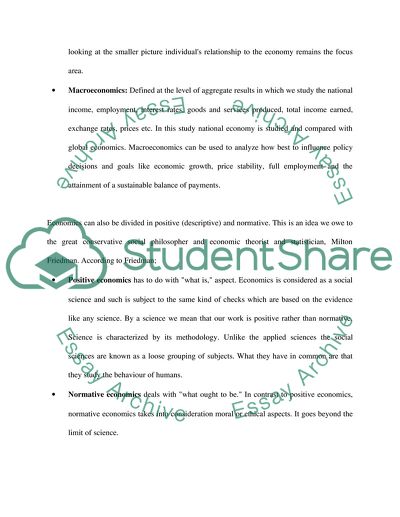Cite this document
(“Economics Definition Essay Example | Topics and Well Written Essays - 2000 words”, n.d.)
Economics Definition Essay Example | Topics and Well Written Essays - 2000 words. Retrieved from https://studentshare.org/macro-microeconomics/1538217-economics-is-the-study-of-how-wants-are-satisfied-and-decisions-made-when-faced-with-limited-resources
Economics Definition Essay Example | Topics and Well Written Essays - 2000 words. Retrieved from https://studentshare.org/macro-microeconomics/1538217-economics-is-the-study-of-how-wants-are-satisfied-and-decisions-made-when-faced-with-limited-resources
(Economics Definition Essay Example | Topics and Well Written Essays - 2000 Words)
Economics Definition Essay Example | Topics and Well Written Essays - 2000 Words. https://studentshare.org/macro-microeconomics/1538217-economics-is-the-study-of-how-wants-are-satisfied-and-decisions-made-when-faced-with-limited-resources.
Economics Definition Essay Example | Topics and Well Written Essays - 2000 Words. https://studentshare.org/macro-microeconomics/1538217-economics-is-the-study-of-how-wants-are-satisfied-and-decisions-made-when-faced-with-limited-resources.
“Economics Definition Essay Example | Topics and Well Written Essays - 2000 Words”, n.d. https://studentshare.org/macro-microeconomics/1538217-economics-is-the-study-of-how-wants-are-satisfied-and-decisions-made-when-faced-with-limited-resources.


